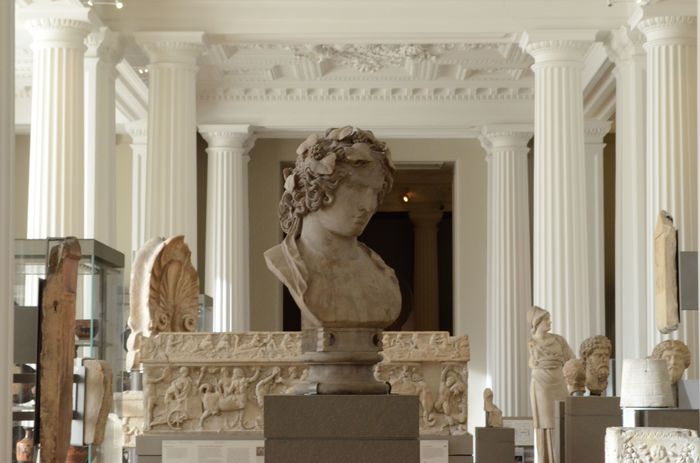Advancing African academic ambition
Zindzi Khaya Douglas-Pedersen meets the people behind the Mastercard Foundation Scholars Program, providing opportunities for the youngest continent on the planet

In today’s tumultuous geopolitical landscape of climate change and regional instability, a spotlight is shined on the African continent, which offers boundless opportunities and the fastest growing youth population in the world. To unlock this potential, young African innovators need to be included in decision-making and the development of sustainable solutions to ensure historic patterns of resource exploitation do not endure.
In 2022, the Mastercard Foundation Scholars Program was introduced at the University of Cambridge, providing African students with a fully-funded scholarship to complete their master’s degree, supporting 58 students from 14 different African countries in the class of 2024/25.
“It’s quite nice to get that feel of South-South cooperation and witness the alumni working together as Africans”
Dr Tabitha Mwangi, the programme director, said its aim was“to have representation from all over the continent, removing barriers so that anyone, from anywhere can come and do a master’s.” She said, “what really motivates the whole team is to see just how well the Mastercard Foundation Scholars do as they develop confidence that they belong here.” Beyond the student financing, Mwangi emphasised, “the ethos of wrap around care,” including termly leadership training, entrepreneurship workshops, mentorship support and networking opportunities.
In order to amplify the voice of the continent, African leaders need to be representative of the youth demographic. This requires closing the current gap that exists whereby the average age of African leaders is over 60, juxtaposed by a population with an average age near 20.
“The average age of African leaders is over 60, juxtaposed by a population with an average age near 20”
Thabiso Ncube, who is the Mastercard Foundation Scholars Council Representative said, “the leadership courses aim to instill in us the concept of transformative leadership, empowering us to initiate meaningful change.” He reflected on how his younger self “would be in disbelief and shock” if he knew that “despite the roadblocks and detours he had to endure, delay did not mean the denial of his dreams” as one day he would study at the University of Cambridge. Thabiso said, “growing up in Bulawayo and hearing teachers praise you […] you don’t pay much mind to it, but now looking back it’s like wow, they really saw something in me.”
An additional pillar essential to the programme is its focus on driving innovation and social ventures through the collaboration with the King’s College Entrepreneurship Lab – one element of the partnership being the Social Ventures Residential during Lent term. Claire Matsika, an MPhil in Biological Sciences, said, “the residential showed me that business and social impact can go hand in hand,” continuing, “it also gave me the confidence to see myself as a future leader, ready to make a real difference in African food security.”
Yet for some students, myself included, the true value of the framework for the Mastercard Foundation Scholars Program has been its ability to forge genuine friendships and a shared sense of community among the cohort, which would have been otherwise difficult to achieve as an international student. Great Nnamani, an MPhil Development Studies student, affectionately noted that “nothing beats the beautiful relationships and bonding Mastercard Foundation Scholars have made – it’s like a home away from home.” He emphasised “I am delighted to be part of the energetic young people that are keen on making change in Africa and contribute to its social and economic development.”
Although still in its nascent stages, it appears that the Mastercard Foundation Scholars Program at the University of Cambridge has tapped into something special. Beyond granting African students access to Cambridge, it creates a transformative network of young people, with leadership and entrepreneurial skills that will be critical to driving sustainable change on the continent. By 2030, 500 students will have passed through the programme, ensuring Africa’s story is shared with the world. So far, when it comes to creating an encompassing scholarship framework, it looks like they are mastering it!
 Comment / Cambridge students are too opinionated 21 April 2025
Comment / Cambridge students are too opinionated 21 April 2025 Comment / Does the AI revolution render coursework obsolete?23 April 2025
Comment / Does the AI revolution render coursework obsolete?23 April 2025 Comment / Cambridge’s tourism risks commodifying students18 April 2025
Comment / Cambridge’s tourism risks commodifying students18 April 2025 News / News in brief: campaigning and drinking20 April 2025
News / News in brief: campaigning and drinking20 April 2025 Interviews / Meet the Chaplain who’s working to make Cambridge a university of sanctuary for refugees20 April 2025
Interviews / Meet the Chaplain who’s working to make Cambridge a university of sanctuary for refugees20 April 2025






